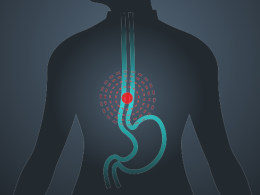Introduction
Pregnancy is a remarkable journey marked by various changes and considerations for the expecting mother. Ensuring safety during this crucial time is paramount for both maternal and fetal health. This article delves into the multifaceted aspects of safety in pregnancy, encompassing risks, considerations, and individual health factors that contribute to a healthy gestation period.
Understanding Pregnancy Risks
Pregnancy introduces a myriad of potential risks that can impact the health and well-being of both the mother and the developing fetus. It’s essential to be aware of these risks to take proactive measures and mitigate any potential complications. Some common risks during pregnancy include:
1. Maternal Age
Advanced maternal age, typically defined as age 35 and above, poses certain risks during pregnancy. Older mothers may be at a higher risk of gestational diabetes, hypertension, chromosomal abnormalities in the fetus (such as Down syndrome), and miscarriage.
2. Pre-existing Medical Conditions
Women with pre-existing medical conditions, such as diabetes, hypertension, or autoimmune disorders, may face additional challenges during pregnancy. Proper management of these conditions is crucial to minimize complications and ensure a healthy pregnancy outcome.
3. Lifestyle Factors
Certain lifestyle factors can adversely affect pregnancy outcomes. These include smoking, alcohol consumption, illicit drug use, and exposure to environmental toxins. Adopting a healthy lifestyle and avoiding harmful substances is vital for the well-being of both the mother and the baby.

4. Multiple Gestation
Pregnancies involving twins, triplets, or higher-order multiples are considered high-risk due to increased chances of complications such as preterm birth, low birth weight, and gestational diabetes. Close monitoring by healthcare providers is essential for the management of multiple gestations.
Key Considerations for a Safe Pregnancy
Ensuring a safe and healthy pregnancy involves a combination of medical care, lifestyle modifications, and emotional support. Here are some key considerations for expectant mothers:
1. Prenatal Care
Regular prenatal check-ups are essential for monitoring the progress of pregnancy and detecting any potential complications early on. These visits allow healthcare providers to provide appropriate guidance and interventions to promote a healthy pregnancy.
2. Nutritional Support
Proper nutrition is critical for the optimal development of the fetus and the overall health of the mother. A well-balanced diet rich in essential nutrients, including folic acid, iron, calcium, and omega-3 fatty acids, is recommended during pregnancy. In some cases, prenatal vitamins may be prescribed to ensure adequate nutrient intake.
3. Physical Activity
Maintaining a regular exercise routine during pregnancy can offer numerous benefits, including improved cardiovascular health, better mood regulation, and enhanced stamina for labor and delivery. However, it’s essential to consult with a healthcare provider before starting or modifying any exercise program during pregnancy.
4. Emotional Well-being
Pregnancy can evoke a range of emotions, from joy and excitement to anxiety and stress. It’s essential for expectant mothers to prioritize their emotional well-being and seek support when needed. This may involve talking to a trusted friend or family member, joining a support group, or seeking professional counseling.
Individual Health Factors and Pregnancy
Every pregnancy is unique, and individual health factors play a significant role in determining the course and outcome of gestation. Factors such as genetics, previous pregnancy history, and socio-economic status can influence pregnancy outcomes in various ways.
1. Genetic Factors
Genetic predispositions can impact pregnancy outcomes, affecting factors such as fertility, miscarriage risk, and susceptibility to certain pregnancy-related complications. Genetic counseling may be recommended for couples with a family history of genetic disorders or chromosomal abnormalities. Explore More About (Arthritis)
2. Previous Pregnancy History
A woman’s previous pregnancy history can provide valuable insights into her current pregnancy. Previous obstetric complications, such as preterm birth, preeclampsia, or gestational diabetes, may increase the risk of recurrence in subsequent pregnancies. Close monitoring and proactive management are essential in such cases.

3. Socio-economic Factors
Socio-economic factors, including access to healthcare, education, and financial resources, can significantly influence pregnancy outcomes. Women from disadvantaged backgrounds may face barriers to receiving adequate prenatal care, leading to higher risks of complications and adverse pregnancy outcomes.
Conclusion
Safety in pregnancy encompasses a wide range of considerations, from understanding potential risks to implementing preventive measures and addressing individual health factors. By prioritizing regular prenatal care, adopting a healthy lifestyle, and seeking emotional support when needed, expectant mothers can enhance the likelihood of a safe and successful pregnancy. Ultimately, every pregnancy journey is unique, and tailored care and support are essential to ensure the best possible outcomes for both mother and baby.










